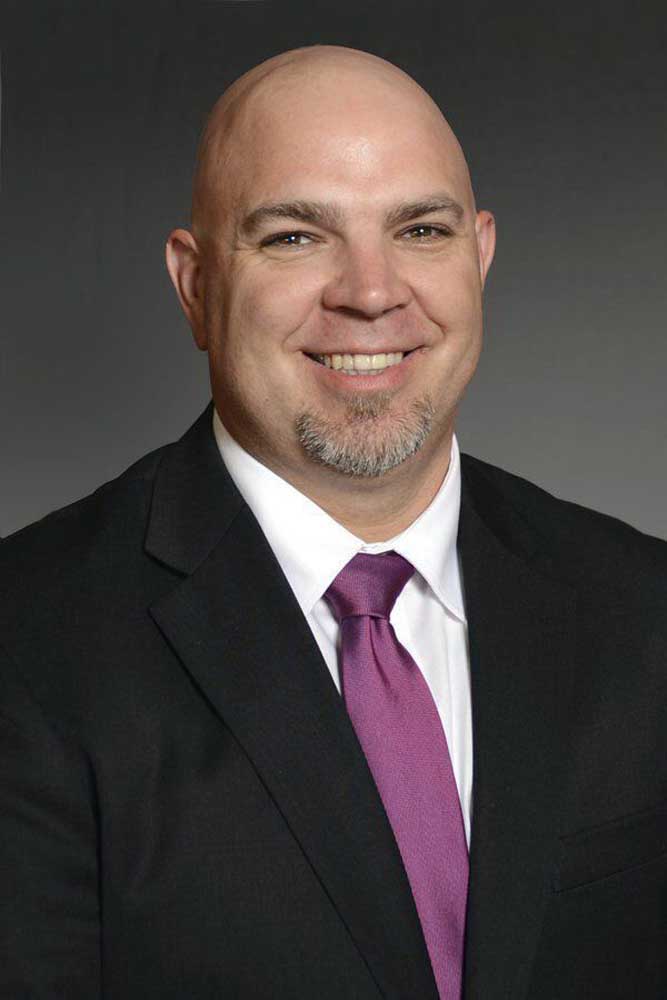State Rep. Jason Ridley: Highlights from the House for Feb.22
Published 12:00 pm Tuesday, February 21, 2023

- Jason Ridley
Monday, Feb. 13, brought week six under the Gold Dome. Our final day in the chamber last week marked the halfway point of this year’s session. With 20 legislative days down and 20 to go, the speed has increased as we work towards “Crossover Day,” scheduled for day 30. Our votes in the House of Representatives focused on measures of importance such as healthcare and education.
Healthcare
Trending
To ensure the health and wellbeing of all pregnant women, especially those with lower incomes, we passed House Bill 129. This bill would expand the eligibility criteria for Temporary Assistance for Needy Families (TANF) benefits to pregnant women. TANF provides monthly cash assistance to extremely low-income families with the goal of moving these families toward economic freedom and self-sufficiency.
Those at high risk for certain medical conditions will take comfort in the passage of House Bill 85, which would require Georgia health insurance benefit policies to cover biomarker testing. Biomarker testing analyzes a patient’s tissue, blood or other biospecimen to look for genes, proteins and other substances, allowing for expedited diagnosis, treatment, management and monitoring of a disease, such as cancer. This testing will assist in clarifying a diagnosis and even determine the best treatment for an individual. While biomarker testing is most used for cancer, it could soon be used for other conditions, such as Alzheimer’s.
We also passed House Bill 143, which would require the Georgia Department of Community Health to cover continuous glucose monitors (CGMs) as a pharmacy benefit through Medicaid. Medicaid recipients would be eligible for this benefit if they have a diabetes mellitus diagnosis and use insulin daily or have a history of problematic hypoglycemia. CGMs will allow those living with diabetes or hypoglycemia to better manage their health, but without insurance coverage, this device is very expensive. As such this bill ensures that Medicaid patients also have access to these lifesaving machines.
Education
To support our schools in the rural areas of our state, we passed House Bill 81 to revise the qualifications of grant funding opportunities for low-wealth K-12 school systems to help build and maintain schools. Due low SPLOST (Special Purpose Local Option Sales Tax) revenues, many rural school systems cannot afford to build new facilities. These grants would assist in the restoration of old buildings and aging infrastructure to offer safer learning environments for our students and teachers in these areas of the state. To be eligible for funding, the local school system must meet the following:
• Currently, or within the last three years, ranked in the bottom 25% of SPLOST collections and in property value.
Trending
• System would be required to commit five years of their SPLOST revenues toward the applicable project.
• Requires that educational facilities be at least 35 years old to receive funding for consolidation projects.
• Limits systems to only receive these grants every 10 years after their need has been met.
House Bill 87, also known as the “Completion Special Schools Act,” was passed in hopes of increasing our graduation rate. This act creates additional pathways for at-risk students to earn their high school diplomas. Under the bill the State Board of Education will adopt policies to allow the establishment, funding and operation of “completion special schools.” These schools would give greater flexibility to high-risk students by offering online instruction and night classes, thus increasing the opportunity to earn a high school diploma. Unlike our traditional system, completion schools would also allow students who turn 18 to self-enroll in courses until they are 22 years old. Many school superintendents support this bill as an avenue to raise graduation rates across the state and produce a more skilled workforce.
House action
The following House bills also passed and are now under consideration in the Senate.
• House Bill 76, would revise the licensing requirements for an associate marriage and family therapist to allow the Commission on Accreditation for Marriage and Family Therapy Education to set coursework, training hours and the type of clinical experience needed.
• House Bill 91, requires a personal estate representative to notify all beneficiaries about a will and file such notices with the probate court within a certain timeframe.
• House Bill 132, allows the use of ungraded lumber to build non-habitable accessory structures on property zoned or primarily used for residential or agricultural purposes.
• House Bill 139, restricts disclosure of the home address, date of birth and home phone number of a non-sworn employee of a law enforcement agency if he or she testifies for the prosecution in a criminal case and would instead allow the disclosure of the employee’s current work location/phone number.
• House Bill 176, increases monthly payments for superior court reporters as a contingent expense and travel allowance.
• House Bill 182, would align the Georgia recording statute regarding deeds and other instruments with Georgia’s current savings statute.
• House Bill 193, increases the public works construction contract value amount from $100,000 or less to $250,000 or less if the contract is exempt from specific contracting and bidding requirements.
• House Bill 215, creates licensure requirements for advanced practice registered nurses (APRNs) and would define APRNs as persons registered with the Georgia Board of Nursing as a certified nurse midwife, certified nurse practitioner, certified nurse anesthetist, clinical nurse specialist in psychiatric/metal health or a recognized APRN before June 2006; this bill would also make practicing as an APRN without licensure a misdemeanor and allow APRNs and physician assistants to prescribe handicap stickers to patients.
We will resume our work this week to consider several bills under consideration. With only eight legislative days remaining until the “Crossover Day” deadline, our schedules will be extremely hectic. In the coming days and weeks ahead, please feel free to reach out to me with your thoughts or concerns regarding legislation. Thank you for the pleasure and honor of allowing me to serve as your voice under the Gold Dome.





